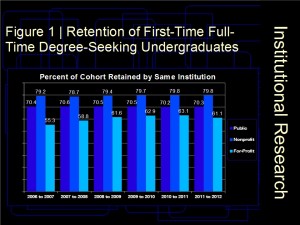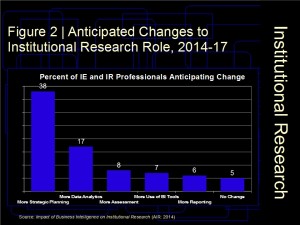Free Kindle E-Book | Outsourcing Student Success
From May 28 to June 1, 2018, during the 2018 Annual Forum of the Association for Institutional Research, Outsourcing Student Success is available as a free download for Kindle users. Please visit Amazon.com to claim your copy. For more information about the contents and argument of Outsourcing Student Success, read the Kindle Edition release announcement or visit the Amazon author page for the new book trailer (note: for those who are unfamiliar with institutional research).
The Second Research (Third Anniversary)
Three years ago, after attending the 2015 Annual Forum of the Association For Institutional Research (AIR) in Denver, Colorado, I wrote my first piece on the condition of institutional research in the United States: The Second Research, Part I.

Prior to the Forum, I had already begun to question the efficacy of the association’s policy and position papers from the past. For instance, in my first brief on this blog, I noted the lack of improvement in first-time, full-time degree-seeking undergraduate (i.e., freshman) retention in the public and non-profit institutions of the United States. Why was it that an association led by self-professed experts in improving data-driven decision making and the freshman experience had so little impact on college students’ first-year retention? Certainly, to my knowledge, the AIR had not led any substantial effort to marshal the nation’s institutional researchers into a rigorous, coordinated approach to studying the freshman experience and retention. As I noted at the time, the best the association had to offer were the bromides to “high-impact practices” that have little to say about the practice of institutional research or improvements for freshman retention (as recent research affirms).
In 2012, the keynote speaker at the Annual Forum of the AIR warned institutional researchers about the dangers of “big data” and data analytics:
[I]t is vital to IR’s utility, credibility, and respect in the eyes of faculty members and administrators that we avoid capitalizing on what’s in a database just because it’s there and just because we now have the capacity for doing ‘big data’ and ‘data analytics’ (and basking in the reflected glory of that and other analytical capacities). The danger, in my view, is that whatever we might turn up is likely to underspecify the complexity of most important problems.
That was the same year that Harvard Business Review declared data science “the sexiest job of the 21st century.”

No wonder, then, that less than twenty percent of institutional researchers from 2014 anticipated “more data analytics” to become integral to their work. In the years immediately following, however, the National Association of System Heads and the American Council on Education expressed deep skepticism for institutional research and advocated the procurement of third-party vendors of data science and analytics as a solution to the lack of improvement in student success and institutional goals. The leadership of the Association for Institutional Research had not appreciably influenced the first-year experience and retention of America’s college students while also missing signs of “the new day” for institutional research that entails expertise in data science and analytics on student success.
Fast forward to the 2018 Annual Forum, and the keynote speaker for the AIR is a published author on “doing data science” and the many sessions on data analytics testify to the sudden struggle to catch up with the “big data” for-profit vendors who now lead the discourse on data science and student success. The adoption of data science, however, has not been accompanied by serious reflection on the association’s shortcomings in its fifty-year history or by regard for the consistency between the old and “new” visions for institutional research advanced by the AIR. Most likely, as I speculated in the epilogue of my work, “The appeal of data science…lies not in its scientific potential but the perceived need to add yet another area of skill focus for the jack or jill of all trades…another color on the palette of the artists.”
Recently, the former and current leadership attempted to obscure its poor stewardship of the association over the past decade and shunt responsibility for the condition of the profession onto the conscientious practitioners who are drawn to the work of institutional research and respond to the job postings. Nonetheless, old visions may not pass as new visions if the historical record is better known. Outsourcing Student Success, the first book to review the one-hundred year history of institutional research in light of the recent challenges facing the profession, takes an honest and critical look at the the progress of the field since the first centralized offices or bureaus formed during the 1910s and 1920s. In “a unique, extraordinary and insightful study” (Midwest Book Review, March 2018), the narrative reveals a century-long contest for control over the study, administration, and future of higher education in America.
Visit Amazon.com to claim your copy.
